[Ebook Việt Hóa] New Plant Parent - Darryl Cheng, Chi Kalanchoe
[Ebook Việt Hoá] New Plant Parent (Darryl Cheng) – Phần 02 – Mother of Thousands (cây thuộc chi Kalanchoe)
- Nguồn: [Ebook] New Plant Parent: Develop Your Green Thumb and Care for Your House-Plant Family – Darryl Cheng
- Biên tập: Dũng Cá Xinh (Tháng 01/2022)
- Dịch: Team Codai.net
English
Mother of Thousands (Kalanchoe)
This succulent plant is easily recognized by its spade-shaped leaves with legions of plantlets waiting to be deployed growing along their edges—the plant kingdom’s invasion force. If you acquired this plant in a pot, do not plant it outdoors, as it is highly invasive in tropical and subtropical regions.
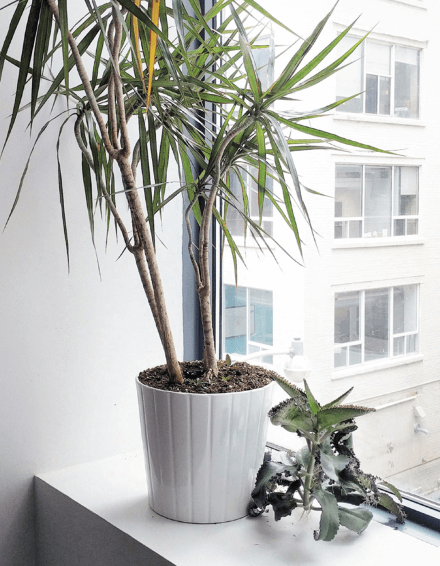
Survival strategy
If you relegate this plant to a low-light area (less than 200 foot-candles), you’ll end up with small leaves that don’t produce plantlets, which is the main attraction for kalanchoe. Give it as much sky light and sunlight as you can, and you’ll get a good showing of plantlets!
Growth strategy
200 foot-candles or more will yield some growth. Give this plant some direct sun and it will live up to its name—well, realistically, maybe just mother of hundreds.
Soil management
With good light, you can water a mother of thousands plant whenever the soil has reached complete dryness. I haven’t seen the need to aerate the soil much—an invader’s roots are accustomed to poor soil!
Subjective life span
A mother of thousands plant doesn’t lend itself to being a “prized specimen” type of plant, due to the sheer volume of plantlets. If you put just one plantlet into its own pot with good cactus soil and give it a sunny location, it will grow to a satisfactory size with many plant-lets within a year. As the years go on, the older leaves curl up and drop off the stem, leaving a mess of plantlets growing beneath it to fend for themselves. So the nature of owning a kalanchoe is cyclical—from plantlet, to adult, to propagation of new plantlets.
Observations from Mother of Thousands Parenthood
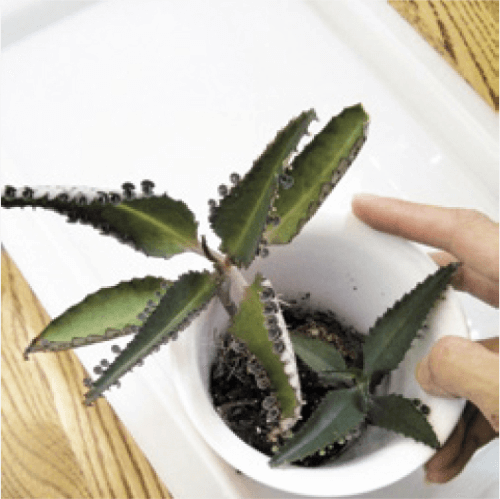
Day 1
A friend was moving out of town, so I adopted her house plants, including this kalanchoe.
These plantlets are already rooting and ready to invade more soil.
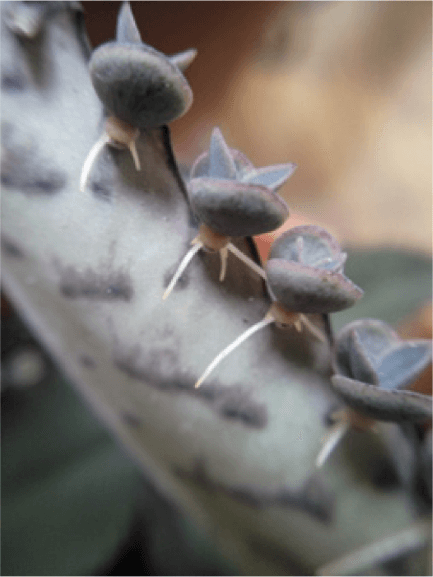
1 year
Look at this army of plantlets! This was only possible because I moved the plant to my office kitchen windowsill, which faces south, but the sun is partially blocked by taller buildings.
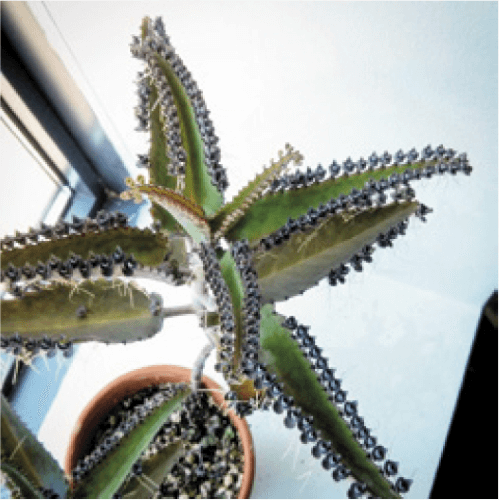
2 years
About a year ago, someone at my office thought it would be funny to take a plantlet and stick it into the dracaena’s pot. Now this beast is shooting plantlets back into the pot, stealing nutrients from the poor dracaena. After taking this photo, I removed all the babies inside the pot..
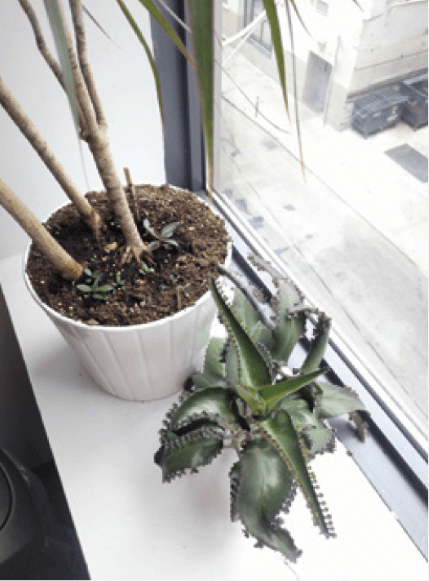
The natural progression of the kalanchoe is to drop its lowest set of leaves as it continues to grow a new set. All the while, plantlets find their way into neighboring soil—this aloe is not happy with an uninvited guest!
Tiếng Việt
Đang cập nhật
![[Ebook Việt Hoá] New Plant Parent (Darryl Cheng) – Phần 02 – Mother of Thousands (cây thuộc chi Kalanchoe) [Ebook Việt Hoá] New Plant Parent (Darryl Cheng) – Phần 02 – Mother of Thousands (cây thuộc chi Kalanchoe)](https://vn1.vdrive.vn/codai.net/2021/02/18-mother-of-thousands-kalanchoe.jpg)


